
She's here! My pub-sister: Cissa-Jean Chappell! Crissa was actually the very first person to blurb A BLUE SO DARK (and her blurb was so kind, I actually got a little misty-eyed when I read it…)
...Wait, you're saying. Pub-sister? Did you say pub-sister? Yup. Read on...
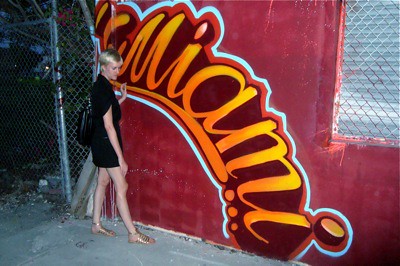
Please tell us about TOTAL CONSTANT ORDER.
My first book is about a girl who struggles with obsessions. Fin’s world is like a movie with the volume cranked up. Her need to keep count becomes a way of controlling the chaos inside her head. I think a lot of teens feel out of control in high school. Your life doesn’t belong to you.
When I wrote Fin’s story, I wanted to show a strong girl, not a victim who needs “fixing,” a girl who channels her nervous energy into something positive (in this case, art).
In some ways, TOTAL CONSTANT ORDER was autobiographical…Where’s the point at which Fin ends and you begin?
Every character is part of me. For two years, Fin was my alter ego in cyberspace. I wrote about my own goofy experiences in the present tense—like bumping into a mariachi band at the dentist’s office— and channeled them through the eyes of my fifteen-year-old self.
In a way, the creation of Fin’s Diaryland blog wasn’t much different than writing a novel: You cut and paste your observations (mental snapshots, bits of dialogue, and, of course, the people you meet along the way) and remix them, DJ-style, into something that feels true.
Did writing a book that blurred the lines of fiction and reality alter your reality in any way?
After the book came out, some of Fin’s readers sent emails, asking, “Is this a real person?” And I answered, “Yes.” I am real. The feelings and the observations posted there are real. And the novels I write are “real” in some way…if only because the “raw footage” started somewhere in the world before it was “edited” (not with iMovie software, but through characters and conflict and the dramatic structure of a narrative).
I taught a few courses myself—I know it’s so, so hard to keep half your head in classroom activities and half in your current work of fiction. How does teaching help you as a writer?
I write young adult novels…and I’m fortunate to spend my days surrounded by crazy college kids who make me think/laugh/all the above. In my screenwriting classes, we workshop together (reading out loud really helps. You instantly know whether dialogue sounds stilted or expository and when a scene drags on too long). Then I go home and work on my own stories. Sometimes I’ll stop and think: “Well, I wouldn’t let a student get away with this…”
You’re a visual person—does drawing ever aid your writing? Do you ever brainstorm by sketching?
Yes, I love to draw my characters and daydream about what they’re doing, like a short clip from a film. It charges both sides of the brain (the creative and the analytical). Writing is a right-brained, freestyle thing for me, while the editing that comes after the first draft is a totally different process.
I’m also intrigued by the shrunken manuscript process you pictured on your blog. (I’ve met so many authors who claim to be pants-ers. And I’m often jealous of this, because I tend to be a methodical plotter…But the shrunken manuscript seems right up my alley...)Where did you learn about the shrunken manuscript—and did it work for you?
Darcy Pattison featured the Shrunken Manuscript Technique on her website (http://www.darcypattison.com/revision/shrunken-manuscript/). When you’re used to staring at a computer screen, it’s easy to feel intimidated by the size and scope of a three-hundred page novel. When I print out the pages and throw them on the floor, I still feel a little overwhelmed. So I tried Pattison’s method of shrinking the font and simply looking at the book like a map. I taped different colored Post It notes to each chapter (representing the goal of each scene, who’s there, and what are they doing). Then I stepped back (after nudging my cat off the papers!) and realized that certain scenes repeated or felt unnecessary (I tend to write a lot in my early drafts and cut later). It was a huge help. Finally, I could “see” the whole book.
I love the mention on your website of recording stories on a Panasonic cassette recorder (my brother and I used to act out stories on our own cassette recorder)! Do you feel those early recordings helped shape your writing in some way?
I dragged that thing everywhere…and recorded non-stop, creating my own sound effects (think: crinkled Mylar balloons for rain). I tossed my clunky Panasonic in a bicycle basket, hauled it into trees, and carried it in a Ziploc bag at the deep end of the pool. I’d splice the soundtrack between chunks of epic storylines involving elves or ninja turtles. But I also recorded long, random conversations with my cousin (Who kept whispering, “Is that thing on?”) No doubt, it helped me develop an ear for dialogue. And it forced me to make choices about editing—what to include, what to leave out.
Sometimes I’d ransack my dad’s office in search of blank, white cassettes, which I painted with nail polish. Out of desperation, I’d record over his business tapes (once in a while, you could hear a man’s monotone voice droning on about mutual funds). The best part about stories on tape: it’s like having somebody read to you, just like when you’re little. I still love to close my eyes and imagine the spaces between the words.
In the Miami Herald interview posted on your website, you describe what it’s like to have OCD. Does OCD ever benefit your writing in any way?
When I’m working on a manuscript, sometimes I have to push myself to move forward. Otherwise, I’ll just keep combing over the previous scenes. The OCD side of my brain won’t let go. It gets stuck on repeat. But a hardcore revision involves scrutinizing every word choice, every sentence and paragraph. So in that way, the intense mental spotlight of OCD is actually beneficial. It’s all about directing your concentration.
Your debut received fantastic reviews…does that make writing the second book intimidating at all?
There’s a kind of freedom in writing your first book. No expectations. Now I’m working on several different stories. I was fortunate to receive positive reviews with my debut. But I don’t want to tell that same story over and over again. There are new narratives to explore, although I believe that writers often return to their favorite themes, whether consciously or not. For example, I will always be interested in characters who are on the outside, looking in…
Entice us—what’s the next Crissa-Jean Chappell book to hit the shelves?
My second book, NARC, just sold to Flux. It’s loosely based on the Trojan Horse (a little darker and older than my debut…and it’s a male POV). The plot revolves around a boy in his senior year who gets a chance to reinvent himself…with a price. It’s the ultimate fairy tale wish. Who wouldn’t want to zap back to high school and change things? As a teenager, your life revolves around creating an identity. Now, with technology (cell phones, social networking, etc.) you’re juggling multiple identities. And that doesn’t make one more “true” than the other.
What’s one idea or impression you hope your work leaves on readers?
Often, it seems like people don’t give teens enough credit. When little kids ask questions, everyone says, “Isn’t that cute?” But when teens ask questions…especially difficult questions..I think it makes adults uncomfortable. Inside, I still feel like I’m a kid, asking questions. And if I never find the answer, that’s okay. It’s the asking that matters.
I, for one, can't wait to read NARC. It's already shot up to the top of my TBR pile. (And as a fellow Flux-er, I have to say we're lucky to have her...)
...You can check in with Crissa while NARC is in development at her website.

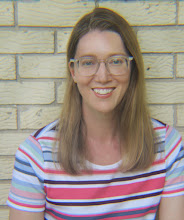













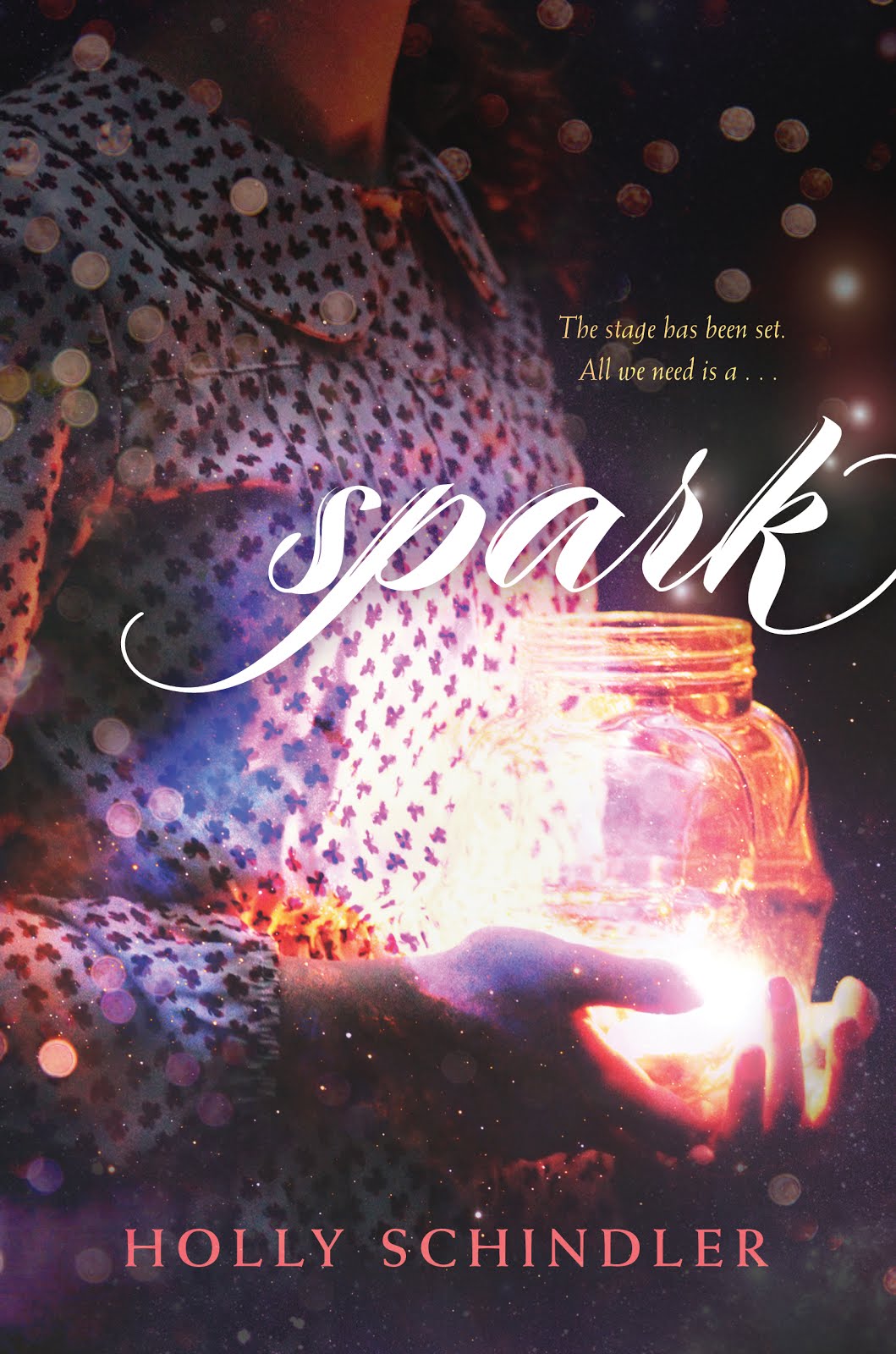





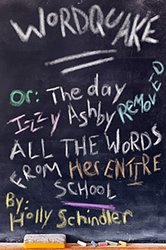



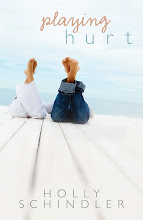

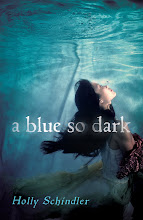








No comments:
Post a Comment